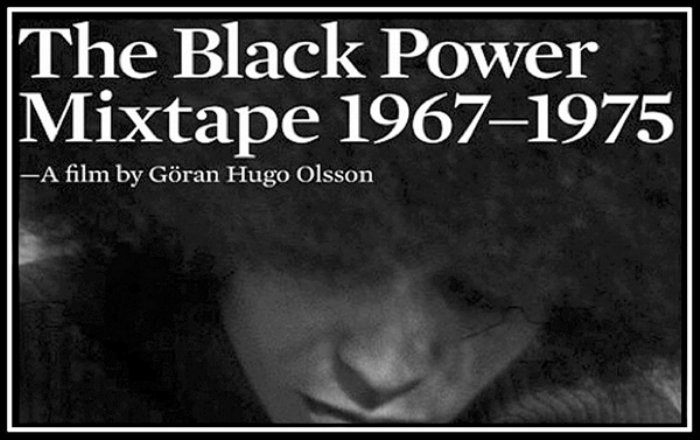The Black Power Mixtape 1967-1975
Director: Göran Hugo Olsson
In English and Swedish with English subtitles
The luxuriant afro and towering intellect of Angela Davis loom large over The Black Power Mixtape 1967-1975, a powerful documentary about a turbulent period in recent American history.
Working with footage shot by intrepid Swedish reporters, director Göran Hugo Olsson (Am I Black Enough for You) takes us back to an era when the idea of a black President in the White House was unthinkable. While mainstream America was under the questionable leadership of Johnson and Nixon, figures like Stokely Carmichael, Bobby Seale and Martin Luther King brought their influence to bear on the black population.
Beginning in the apparently peaceful town of Hallandale, Florida, this film criss-crosses America to pinpoint scenes of confrontation from LA to New York. The US may have been at war in Vietnam, but bitter struggles were also being played out on its own streets. You won’t see much here in the way of rioting, police brutality or murder — even though the period was scarred by assassinations. This a film about the power of ideas – disseminated through books, TV and the remarkable oratory of King, Carmichael, Louis Farrakhan and others.
If like me you know little about black American history in that period, The Black Power Mixtape provides an accessible introduction to how the Black Panthers, the Nation of Islam and Communism came to threaten the established order. Among the remarkable footage here is the sight of Carmichael grabbing the mic to interview his own mother and a defiant Davis speaking from prison in 1972 at the height of her persecution.
When documentaries intersperse archive pictures with “talking heads” it can be distracting. But Olsson sticks with film from the era, introducing the voices of contemporary artists and musicians like Talib Kweli and Erykah Badu to put the civil rights pioneers in a 21st-century context. Musician John Forté, jailed himself a decade ago, talks about the importance of reading Davis while he was incarcerated.
This film is notable for the range and eloquence of views expressed by the famous and the infamous, as well as ordinary bystanders. But you might find yourself smiling at the slightly incongruous sound of those earnest Swedes conducting the interviews. Back in the early 70s, however, the American Establishment was not laughing.
Not content with throwing black activists into prison and flooding the streets with hard drugs, they even went to war on those truth-seeking Scandinavians. In 1971 TV Guide magazine foolishly railed against this portrayal of America as “an evil country, run by evil men.” (Sounds about right to me.) So if you thought ABBA was Sweden’s only significant cultural export of that decade, think again.
Susannah Straughan
–
Visit the official website for the 55th BFI Film Festival


